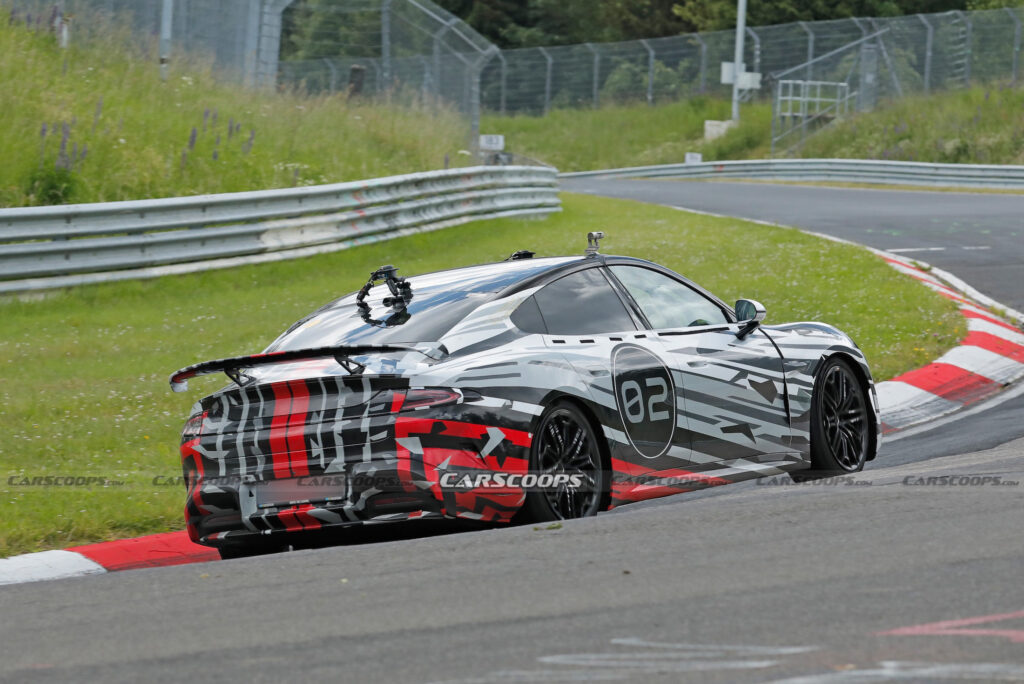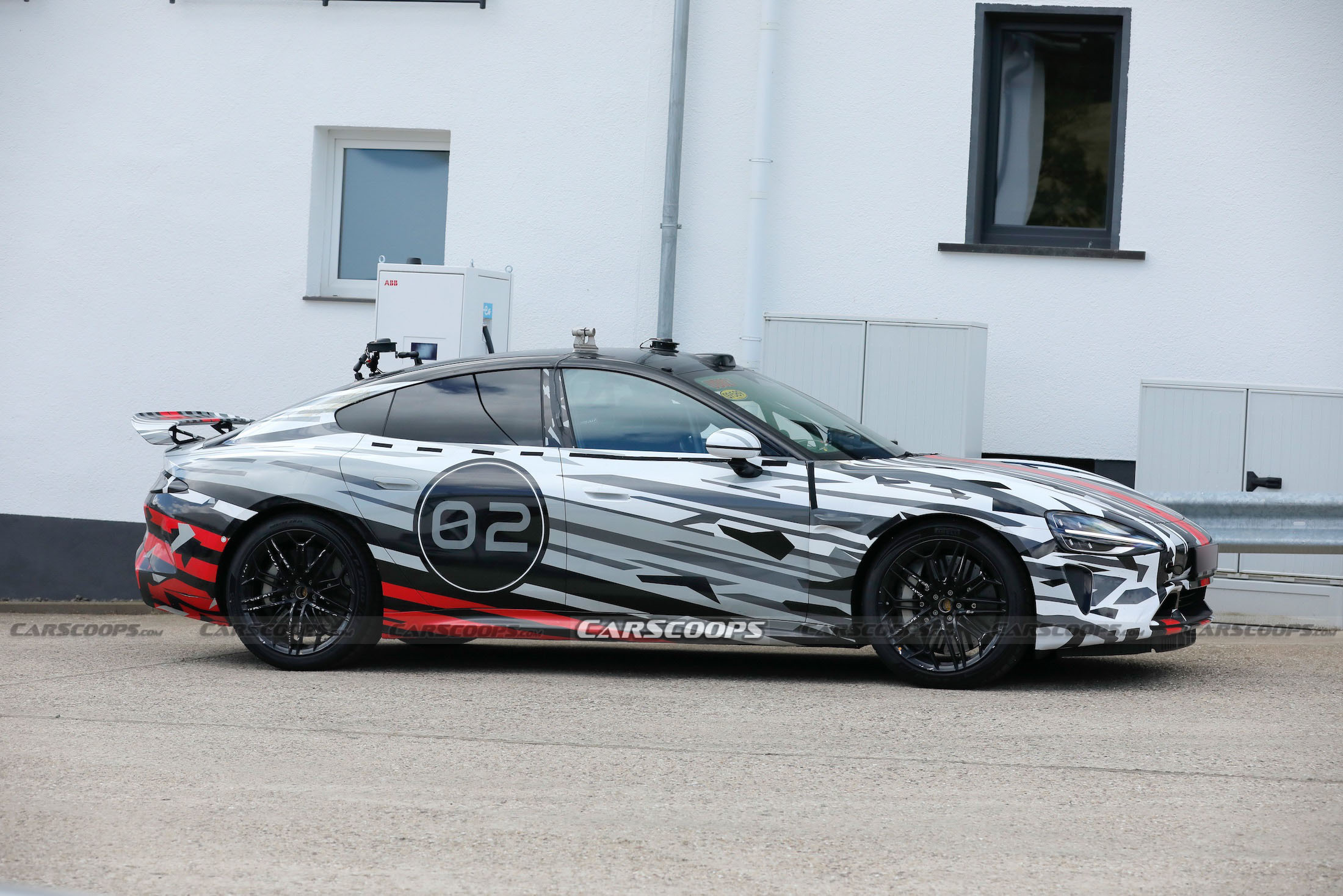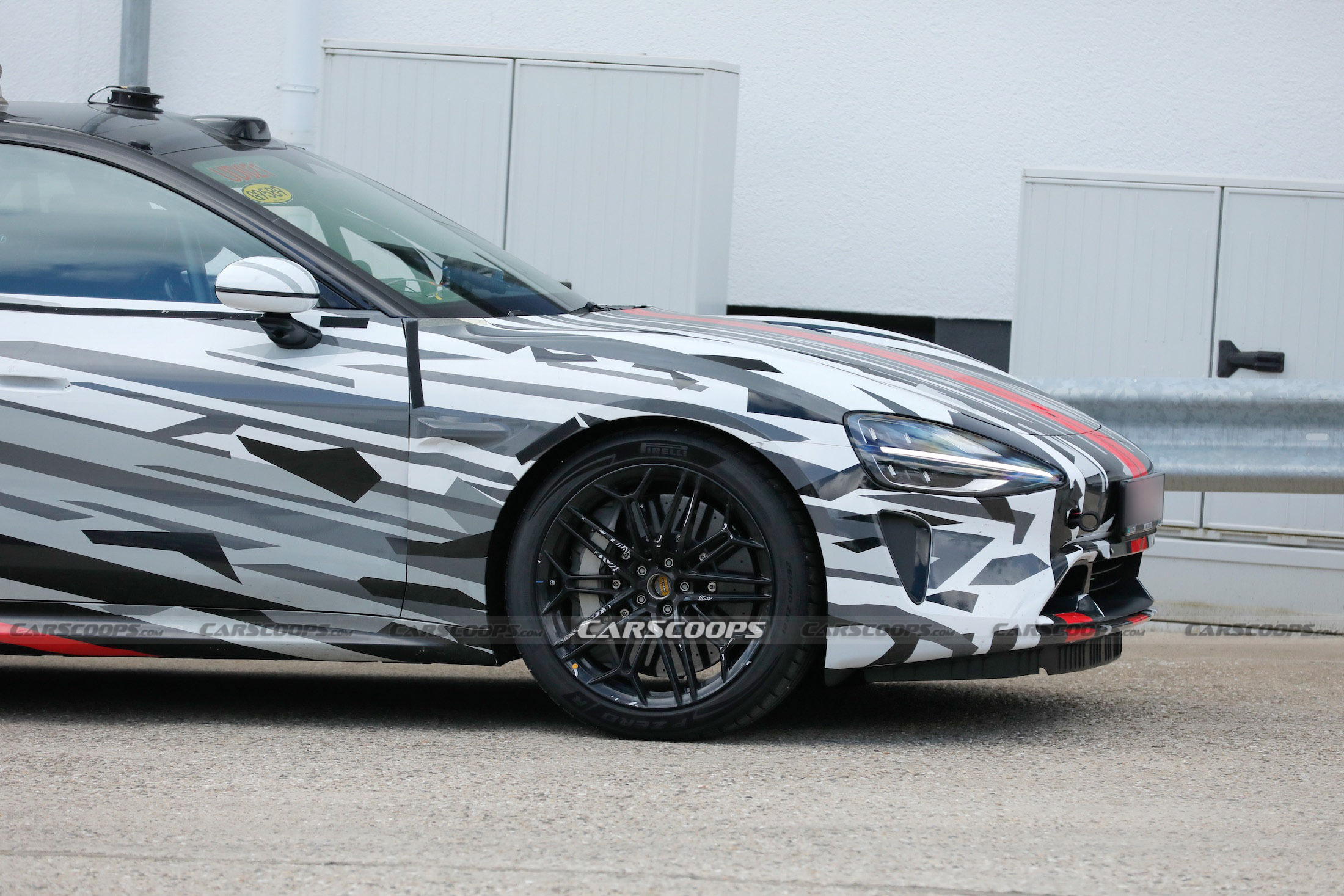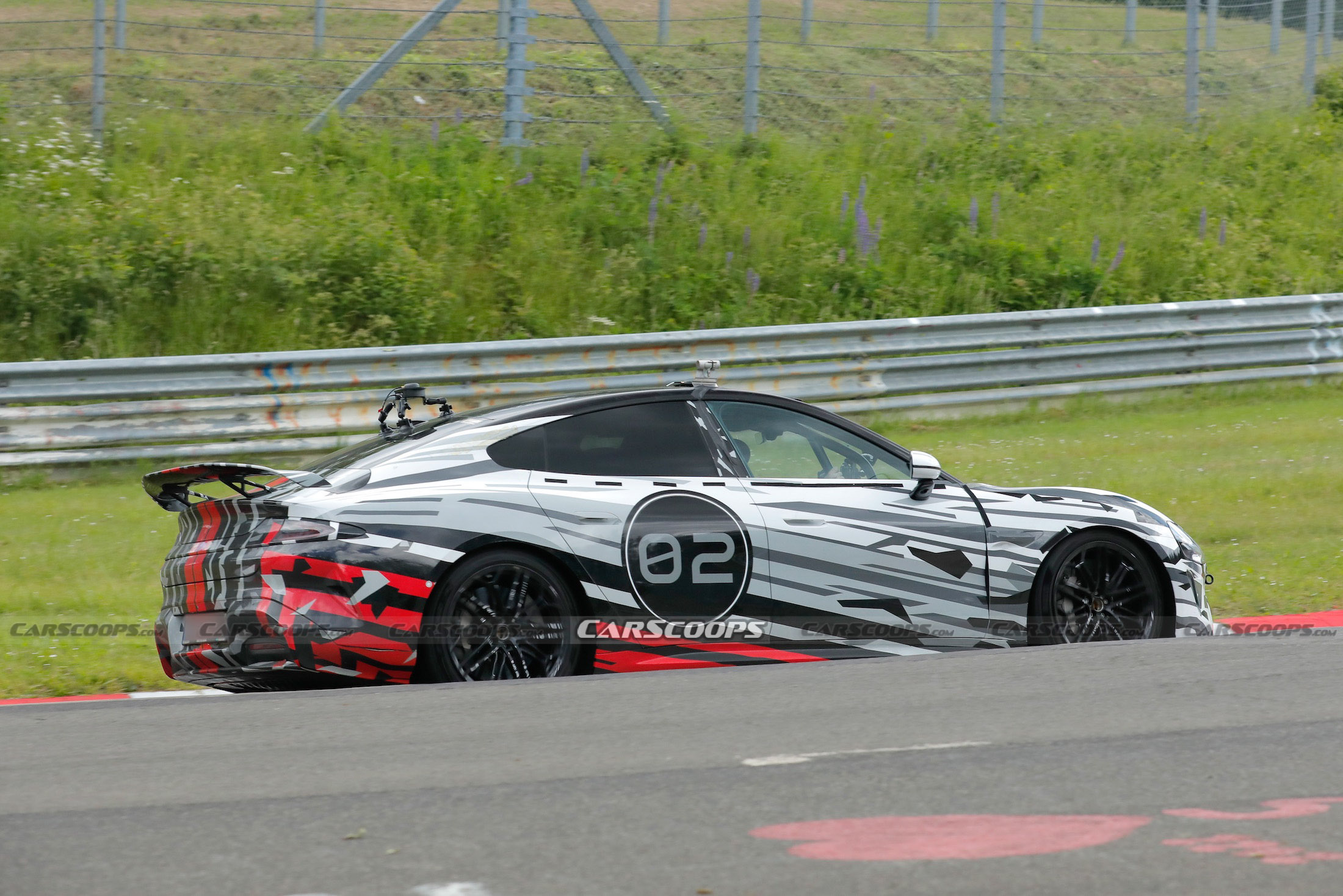- More powerful prototype version of Xiaomi SU7 electric sedan seen testing on the Nurburgring.
- Hardcore variant is expected to have over 1,000 hp, targeting the Porsche Taycan Turbo GT and Tesla Model S Plaid.
- Taycan Turbo GT recently lapped the Ring in 7:07.55, becoming fastest production EV after Rimac Nevera.
It looks like Xiomi’s SU7 isn’t content with merely ripping off the Porsche Taycan’s design. Now it’s coming after its Nurbrurging glory with a new, hardcore variant of the China-built electric sedan.
Smartphone-maker Xiaomi launched the SU7, its first-ever EV, in December last year, resulting in a flurry of orders for a car whose lower trims undercut a Tesla Model 3 on price, and whose higher grades offer something approaching Porsche Taycan Turbo power and performance.
Related: Brand New Xiaomi SU7 Dies After Just 24 Miles And Can’t Be Fixed By Dealer
The flagship SU7 features dual electric motors generating 663 hp (495 kW) and 838 Nm (618 lb-ft) of torque, which propel the McLaren-nosed four-door coupe from 0-100 km/h (62 mph) in just 2.78 seconds.
But Porsche’s Taycan has been facelifted since the SU7 was revealed, gaining a ton of power and a new Turbo GT hero model in the process. The Turbo GT produces up to 1,092 hp (815 kW / 1,108 PS) for brief bursts and an example equipped with the optional Weissach lightweight package lapped the Nurburgring in 7:07.55, making it the second fastest production EV after the Rimac Nevera.

The Weissach kit includes a rear-seat delete as well as a fixed rear spoiler instead of the pop-up kind fitted to lesser Taycans, and though the smoked rear glass means we can’t see if Xiaomi’s Nurburgring prototype retains its rear bench, we can see a fixed rear wing. And since a ton of extra downforce at the rear is no good unless you also take away lift at the front end, this SU7 has gained a small chin spoiler mounted underneath the front bumper.
More aero, and the stiffer uprated suspension Xiaomi will have added to make it work is all well and good, but the SU7 is going to need a huge power injection that pushes total output into four-figure territory if it’s going to overhaul the Taycan Turbo GT around the 12.9-miles (20.8 km) Nurburgring course. That kind of muscle should also drop the zero to 62 mph time well below 2.5 seconds.
We should learn more about this still-secret SU7 in the coming months, including its price, which is guaranteed to massively undercut the $230,000 GT3 of the Taycan range.






















